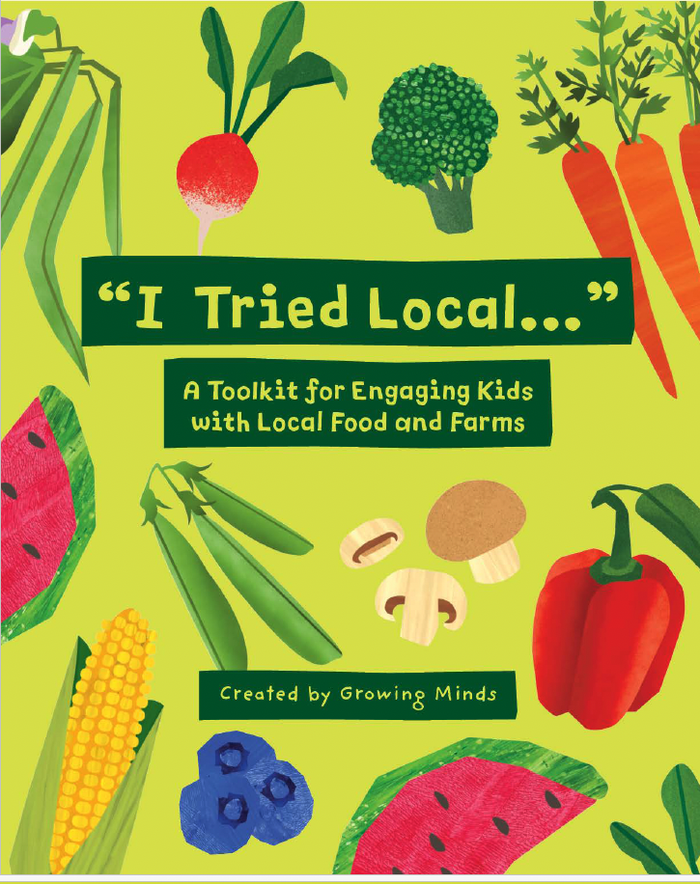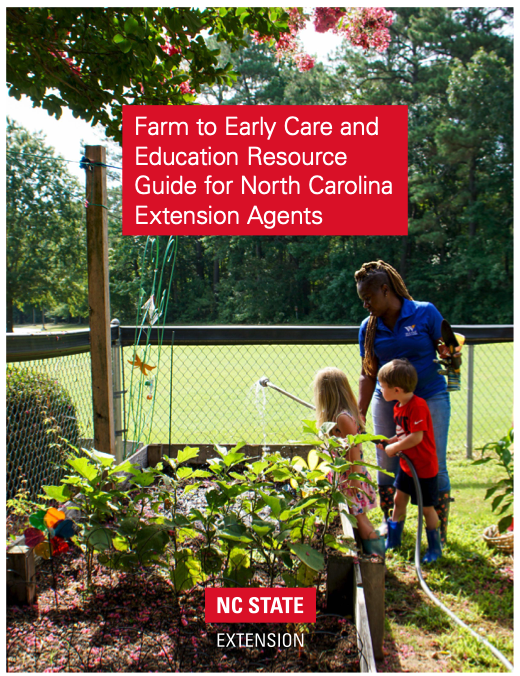With over 4,600 child care centers in NC (NC DHHS 2016), Farm to ECE efforts can provide great value to the centers and their families and help connect to healthy, local food. Many of the resources, programs, toolkits, and funding opportunities can be found on NC State Extension’s Farm to Early Care and Education website through the Local Food Portal.
Farm to ECE Resource Highlight

Growing Minds, a program through ASAP (Appalachian Sustainable Agriculture Project), recently published a new Farm to ECE toolkit to engage children with local food and farms called, “I Tried Local…”. The toolkit highlights 10 crops grown in NC and includes an overview of the crop along with lesson plans, recipes, coloring pages, book recommendations, discussion prompts, and a link to the “Meet Your Farmer” video series featuring NC farmers. Other resources included help implement core elements of farm to school through gardens, classroom cooking and taste tests, farm field trips and farmer visits, and local foods in meals and snacks. The toolkit can be downloaded for free on the Growing Minds Website and educators in NC who participate in a virtual training with Growing Minds will also receive a print toolkit.

As you work in your community with Farm to ECE programs and outreach we hope that these guides and toolkits will be excellent resources for you!